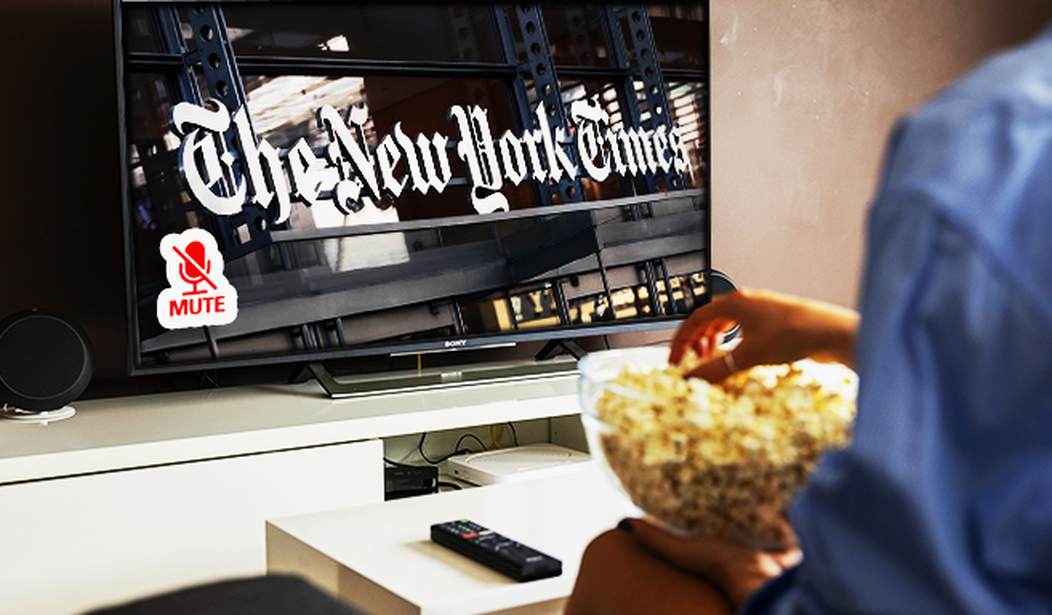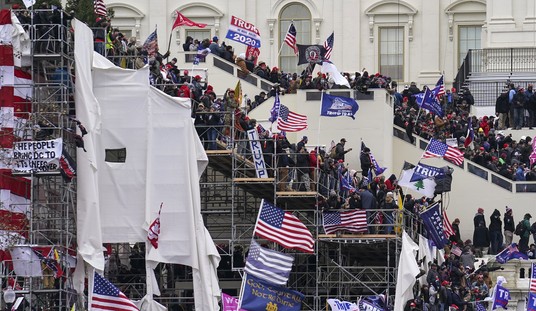Vice President Kamala Harris has found herself in a world of trouble with the election now less than three weeks away. It's possible, but it's also not likely that her campaign can correct course between now and then. Former and potentially future President Donald Trump has also been running a particularly disciplined campaign. Even as the Harris-Walz campaign may appear to be on a course correction, such as with the media blitz, it looks like it just keeps backfiring. Further, Harris' past issues have come back to haunt her.
As Katie covered on Monday, Christopher Rufo provided plenty of evidence that Harris had plagiarized her 2009 book, "Smart on Crime," co-authored by Joan O’C. Hamilton. The title alone ought to make readers skeptical, given how the policies Harris has pursued on crime have been anything but that.
Rufo came armed to the teeth with receipts that he shared in a thread over X. Rufo had confirmed an investigation done by Dr. Stefan Weber, described as "a famed Austrian 'plagiarism hunter' who has taken down politicians in the German-speaking world."
Not only are there examples from media outlets, such as the Associated Press, as well as colleges such as the John Jay College of Criminal Justice, but also Wikipedia.
The investigation was conducted by Dr. Stefan Weber, a famed Austrian "plagiarism hunter" who has taken down politicians in the German-speaking world. We independently confirmed multiple violations, which are comparable in severity to the plagiarism found in former Harvard… pic.twitter.com/P9DTpZS4kV
— Christopher F. Rufo ⚔️ (@realchrisrufo) October 14, 2024
In another section of the book, Harris, without proper attribution, reproduced extensive sections from a John Jay College of Criminal Justice press release. She and her co-author passed off the language as their own, copying multiple paragraphs virtually verbatim. Here is the… pic.twitter.com/9FpsxQE8Sz
— Christopher F. Rufo ⚔️ (@realchrisrufo) October 14, 2024
Harris also copied language from a Bureau of Justice Assistance report report, which was linked in the the Wikipedia entry. Here is the passage in Harris's book, with duplicated material in the other column: pic.twitter.com/aU7CbP0ODm
— Christopher F. Rufo ⚔️ (@realchrisrufo) October 14, 2024
Read the full story about Kamala Harris's plagiarism problem exclusively at my newsletter: https://t.co/qaXvCG3koT
— Christopher F. Rufo ⚔️ (@realchrisrufo) October 14, 2024
Rufo has since highlighted more examples of plagiarism, including from the California government website and the Centers for Disease Control and Prevention.
Recommended
MORE PLAGIARISM: This is a seventh instance of significant plagiarism by Kamala Harris. She copied the language verbatim from a California government website, substituting a single word, rather than paraphrasing it or putting it in quotations. We can keep this going for a while. pic.twitter.com/yHONocMSBh
— Christopher F. Rufo ⚔️ (@realchrisrufo) October 15, 2024
OH NO, MORE PLAGIARISM: This is the eighth instance of significant plagiarism by Kamala Harris. Although she cited the source, she copied long stretches of verbatim language, without paraphrasing or putting it in quotations. This is what they teach you not to do in high school. pic.twitter.com/6JNRrJ6HHQ
— Christopher F. Rufo ⚔️ (@realchrisrufo) October 15, 2024
The mainstream media reaction has ended up mixed. On Monday night, CNN confirmed Rufo's reporting. While the headline and opening focuses on Rufo's role as a "conservative activist," they did acknowledge his findings:
CNN reviewed several of the passages highlighted by Rufo and found that Harris and O’C. Hamilton failed to properly attribute language to sources.
Plagiarized works include using someone else’s work without giving them proper and appropriate credit for their ideas and words. Even if the source of the information is cited, it is still considered plagiarism if the ideas are not paraphrased or quoted in the correct place, experts told CNN late last year.
Rufo shared such an excerpt, as well as concerns about CNN's framing.
BREAKING: CNN confirms my reporting that Kamala Harris plagiarized her book, Smart on Crime.
— Christopher F. Rufo ⚔️ (@realchrisrufo) October 15, 2024
This is exactly how it worked with Claudine Gay: the NYT tried to obfuscate; CNN told the truth; other publications followed. Eventually, even the NYT admitted that it was plagiarism. pic.twitter.com/msa1PpwZaY
So that the liberal audience can dismiss it without reading far enough into the story and discovering that even CNN admits that Kamala Harris did, in fact, plagiarize her book.
— Christopher F. Rufo ⚔️ (@realchrisrufo) October 15, 2024
It gets even worse from there, though, including and especially when it comes to The New York Times.
That outlet was fine getting on board with framing Rufo as a "conservative activist," though they also emphasized how he "seized" on Harris' plagiarism. "Conservative Activist Seizes on Passages From Harris Book," their headline, also from Monday read. Their subheadline even references a "plagiarism expert," who claims that the violations were "not serious."
While the article tried to downplay the violations, they still admit to an issue here:
In a review of the book, The New York Times found that none of the passages in question took the ideas or thoughts of another writer, which is considered the most serious form of plagiarism. Instead, the sentences copy descriptions of programs or statistical information that appear elsewhere.
The five passages that Mr. Rufo cited appeared to have been taken partly from other published work without quotation marks.
Jonathan Bailey, a plagiarism consultant in New Orleans and the publisher of Plagiarism Today, said on Monday that his initial reaction to Mr. Rufo’s claims was that the errors were not serious, given the size of the document.
“This amount of plagiarism amounts to an error and not an intent to defraud,” he said, adding that Mr. Rufo had taken relatively minor citation mistakes in a large amount of text and tried to “make a big deal of it.”
Going with that "seizes" narrative, the write-up also tries to go after Rufo for his opposition to Diversity, Equity, and Inclusion (DEI) practices, and for how he's dared to take down other plagiarists:
Known for his work opposing diversity, equity and inclusion programs, Mr. Rufo, a senior fellow at the Manhattan Institute, a conservative think tank, published plagiarism accusations last year that helped lead to the resignation of Harvard’s president, Claudine Gay.
Mr. Rufo is part of a loose confederation of conservative writers and activists who, during the past year, have tried to expose plagiarism among academics, many of whom have been Black scholars who work in the field of diversity and inclusion.
That these plagiarists are black isn't what's at issue, but rather that they lie, cheat, and try to get away with it and use such bad habits to get ahead. Further, former Harvard President Claudine Gay still teaches graduate courses.
The story gets even richer from there. The expert in question, Jonathan Bailey, came out with a post of his own over X to say he didn't even get to see the book, but merely looked over excerpts provided to him by The New York Times.
For those coming here from the NY Times Article. I want to be clear that I have NOT performed a full analysis of the book. My quotes were based on information provided to me by the reporters and spoke only about those passages.
— Jonathan Bailey (@plagiarismtoday) October 14, 2024
The New York Times withheld key evidence from its "expert" and, because that expert could speak directly to the public, got caught. Imagine how much more frequently this happened before Twitter/X. https://t.co/KFlrJ1sSSm
— Christopher F. Rufo ⚔️ (@realchrisrufo) October 15, 2024
The Harris' team's desperate tactics come into play here as well. Rufo, as justmindy at our sister site of Twitchy covered, also shared that the publisher accidentally revealed all concerns about Harris' plagiarism have to go through higher ups.
Chronicle Books, Rufo posted, sure does look to indeed be "in damage control mode."
BREAKING: Kamala Harris's publisher, Chronicle Books, is in damage control mode. The company accidentally sent my team an internal communication indicating that VP Lauren Hoffman is requiring that all inquiries about Harris's plagiarism go through the higher ups. pic.twitter.com/seiF3bu0R2
— Christopher F. Rufo ⚔️ (@realchrisrufo) October 14, 2024
The Washington Post's coverage of Harris' plagiarism scandal didn't go with the conservative activist "seizes" angle, though it did cover it from a perspective of the campaign's denial. "Harris campaign rejects claims of plagiarism," read the headline, with the subheadline claiming that "Some experts say the incidents cited by a conservative critic are modest and may not reflect an intentional effort to take credit."
Such an outlet went with a similar line of attack against Rufo as The New York Times did:
Rufo, a prominent right-leaning activist, played a central role in the push by conservatives to highlight critical race theory as emblematic of what he sees as the problems with progressives’ approach to education and race. CRT argues that racism in the United States is systemic and not just rooted in individual bigotry — an idea that some find self-evident and others deeply objectionable.
In part because of such arguments, Rufo has become an in-demand activist who has advised numerous Republican and conservative candidates, from school boards to state legislatures to Congress.
He also played a role in pressing Harvard University to oust its former president, Claudine Gay, with accusations that, as a doctoral candidate in the 1990s, she had plagiarized sections of her dissertation. “While her resignation is a victory, it is only the beginning,” Rufo wrote in a Wall Street Journal op-ed after Gay stepped down.
So, what was that campaign's response? It's actually quite laughable, and again, desperate:
“Rightwing operatives are getting desperate as they see the bipartisan coalition of support Vice President Harris is building to win this election, as Trump retreats to a conservative echo chamber refusing to face questions about his lies,” campaign spokesman James Singer said in a statement. “This is a book that’s been out for 15 years, and the Vice President clearly cited sources and statistics in footnotes and endnotes throughout.”
...
“Smart on Crime” was published in 2009 at a time when Harris’s career was taking off as she rose from district attorney of San Francisco to attorney general of California. The book features Harris on the cover, but it also lists Hamilton, a California-based writing collaborator and content consultant, as a co-author. Hamilton declined to comment and referred questions to the Harris campaign.
The Washington Post even thought it necessary to go after Sen. JD Vance (R-OH) for his memoir, "Hillbilly Elegy," because he dared to crack a joke about the plagiarism scandal and how Harris and her co-author took from Wikipedia. Vance also tellingly predicted the media would come after him.
It wasn't just Vance, but The Washington Post went after Melania Trump as well, for her 2016 RNC speech.
The Washington Post went on a jihad against Melania Trump for lifting a few turns of phrase. But when Kamala Harris did this more than a dozen times, the paper explained that it was okay because Kamala didn't know how to use a computer. pic.twitter.com/xZFxyHHeOK
— Christopher F. Rufo ⚔️ (@realchrisrufo) October 16, 2024
Cue the corporate media "fact checkers":
— JD Vance (@JDVance) October 14, 2024
"Vance's tweet is missing important context. Kamala Harris only copied some of her book from Wikipedia."

























